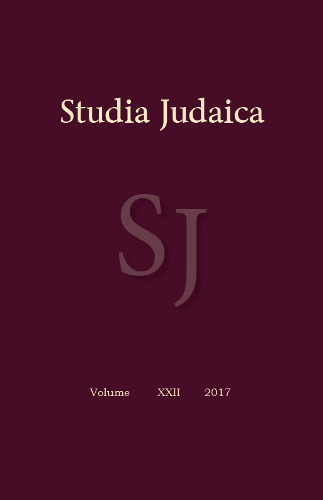Identitary Avatars: Antonio Possevino, S.J., and the Jews during the Post-Tridentine Period
Identitary Avatars: Antonio Possevino, S.J., and the Jews during the Post-Tridentine Period
Author(s): Radu CucuteanuSubject(s): Jewish studies
Published by: Argonaut
Keywords: Antonio Possevino;Jesuits;New Christians;conversion;evangelisation;Early Modernity;attitude toward Jews;
Summary/Abstract: Antonio Possevino was a member of the Society of Jesus and a prominent figure of sixteenth century Catholicism. The present article explores his relation to the Jews as a philosopher of the Catholic Church. We will investigate the openness he displayed toward them by considering two aspects. Firstly, the attitude the Societas Jesu exhibited toward the ‚New Christians‛, specifically their rejection, which led to their exclusion from the order. Possevino was one of the few authorised voices to rise to their support by engaging in a struggle of nearly four decades. His position led to accusations, cast by several parties, that he himself had Jewish origins. This assumption has been accepted, in part, by current historiography as well, a fact which we argue in the present paper. Secondly, we have put forward a series of nuances with regard to Possevino’s positioning on the Jews by demonstrating that he actually tolerated — in contrast with the intolerance displayed by the Jesuit order — and included them in his plan of universal evangelisation. Essentially, Possevino perceived the Jews as enemies of the Christianitas who had to be converted and integrated into it.
Journal: Studia Judaica
- Issue Year: 22/2017
- Issue No: 1
- Page Range: 88-106
- Page Count: 19
- Language: English

